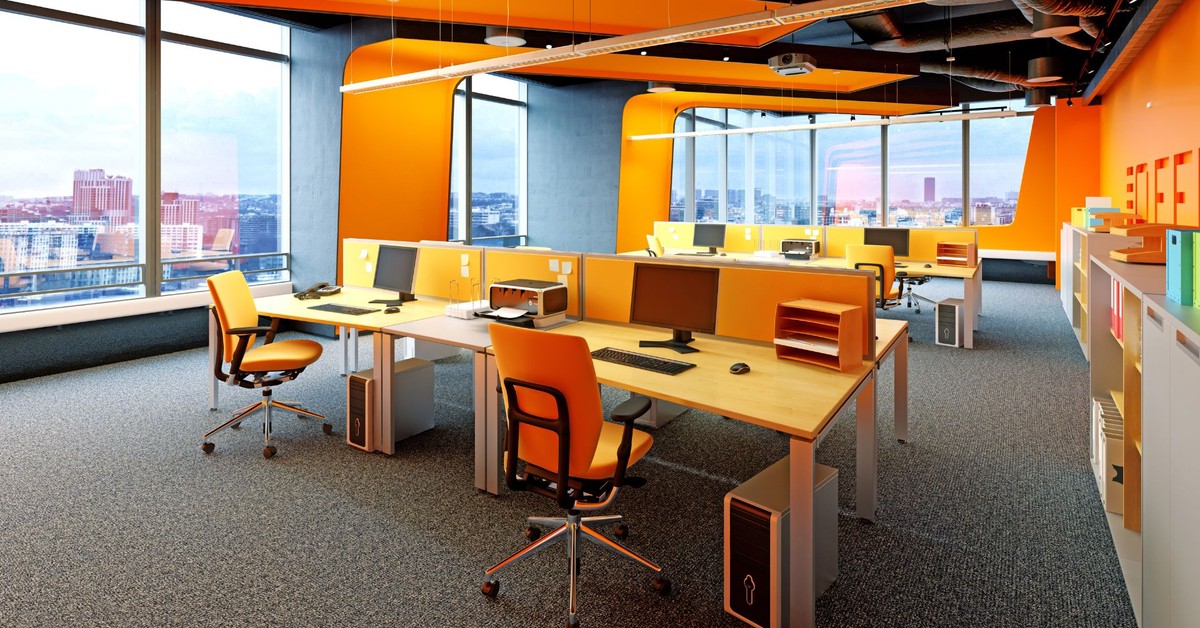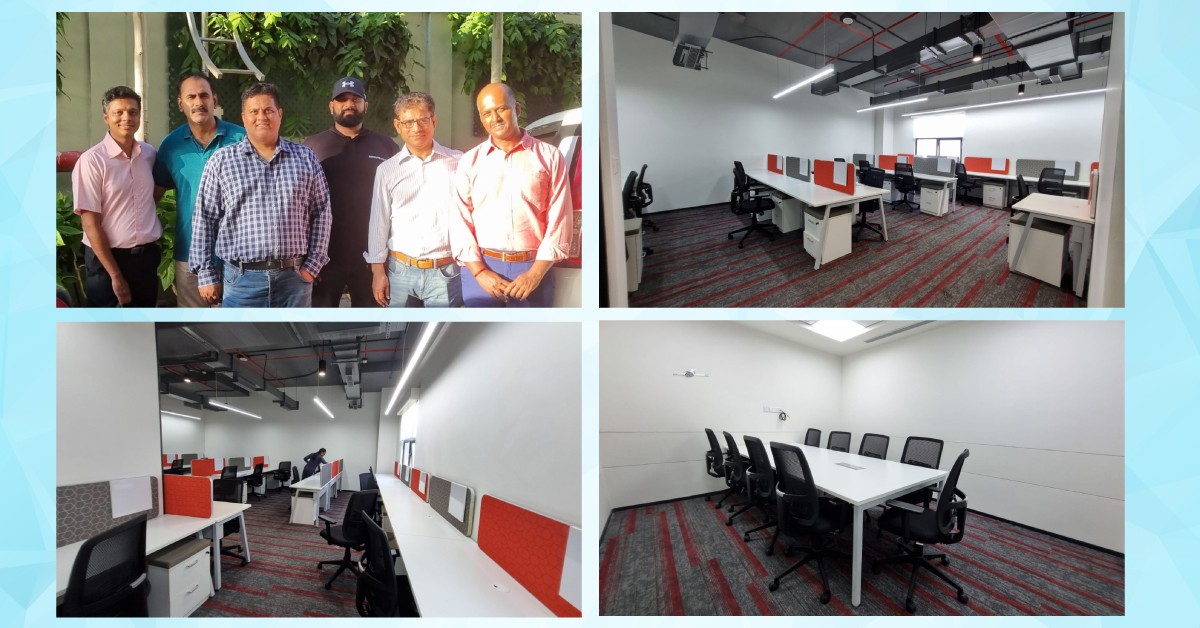Interviews
Budgeting for a New Office - What Businesses Need to Know
Shyam Sundar Nagarajan / Reading Time : 9 mins
Table of Contents
- Understanding Your Office Budget: Where Does the Money Go?
- How Much Office Space Do You Actually Need?
- Fixed vs Flexible Offices: What’s More Cost-Efficient?
- Common Budgeting Mistakes to Avoid
- How to Plan for Office Expenses: A Monthly View
- Why GoFloaters is Your Best Bet for Budget-Smart Offices
- FAQs
- Final Thoughts
Moving into a new office is a significant milestone, especially for growing businesses. But if you’re not careful, what starts as an exciting step forward can quickly spiral into unexpected costs and long-term regrets. From selecting the right size and location to factoring in technology, fit-outs, and ongoing expenses—budgeting for an office space requires more than a ballpark estimate.
Whether you're moving from a coworking space to a private office, scaling your current setup, or starting from scratch, this guide will help you understand where your money goes—and how GoFloaters can help you spend it smarter.
On average, real estate and infrastructure costs account for nearly 10% of a company’s operating budget. Yet, over 60% of founders underestimate the cost of setting up an office. Here's what you need to plan for—and how to stay ahead of surprises.
"Budgeting for a new office involves calculating fixed costs like rent and deposits, plus flexible costs like interiors, utilities, and maintenance. This guide helps businesses understand all hidden charges and plan smarter for expansion. With real examples and benchmarks, it’s the go-to resource for cost-conscious office planning in India."
📑 Key chapter:
- Understanding Your Office Budget: Where Does the Money Go?
- How Much Office Space Do You Actually Need?
- Fixed vs Flexible Offices: What’s More Cost-Efficient?
- Common Budgeting Mistakes to Avoid
- How to Plan for Office Expenses: A Monthly View
- Why GoFloaters is Your Best Bet for Budget-Smart Offices
- FAQs
Understanding Your Office Budget: Where Does the Money Go?
When budgeting for a new office, it's not just the rent you need to worry about. Your total cost will include:
- Lease or Rent Deposits
Depending on the city, this could range from 3 to 11 months’ rent. Cities like Bengaluru and Mumbai typically demand higher deposits.
- Furnishings and Fit-Outs
Chairs, desks, meeting room setups, branding elements, partitions, lighting, and more. A basic fit-out can cost ₹800–₹1,200 per sq ft, and a more premium setup can reach ₹2,000–₹3,000 per sq ft.
- Technology and Infrastructure
Wi-Fi routers, LAN wiring, servers, display screens, AV equipment for boardrooms, power backup, access control systems—all of this adds up quickly.
- Utilities and Maintenance
Electricity, water, cleaning, pantry supplies, and sometimes CAM (common area maintenance) charges.
- Flexibility Costs
If you're opting for a managed office or coworking space, you may pay slightly more per seat—but save on setup and maintenance. Check collaboration to work ratio to plan on the flexibility aspect.
- Hidden Expenses
Licensing, signage approvals, brokerage fees, legal consultations, insurance, and surprise repairs or upgrades.
How Much Office Space Do You Actually Need?
Determining the right size office is more science than guesswork. This is where most companies either over-plan or under-budget.
Use GoFloaters' Office Size Calculator to determine the ideal square footage and number of seats for your team. Don’t rely on gut instinct—align your space with headcount growth, team workstyles, and lease tenure to save money and improve workspace efficiency.
What is the Perfect Office Size? - Office Size Calculator
Read NowConsider These Questions:
- Is your team fully in-office, hybrid, or remote-first?
- Do you need dedicated collaboration zones, or will shared meeting rooms suffice?
- How fast are you growing? What will your headcount be in 12–24 months?
- Will your space support agile seating or fixed desks?
Fixed vs Flexible Offices: What’s More Cost-Efficient?
When budgeting, you need to decide if you're going for a traditional lease, managed office, or coworking arrangement. Here’s a breakdown of how they compare:
When you're budgeting for office space in a city like Bengaluru, it's easy to compare only the monthly seat costs. But it's the hidden operational overheads—like fit-outs, maintenance, tech setup, and lock-in periods—that truly define the cost-efficiency of an office model. Here’s a snapshot comparing estimated per-seat costs across the three popular formats, based on real market data in Bengaluru.
| Feature | Traditional Lease | Managed Office | Coworking Space |
|---|---|---|---|
| Cost Per Seat (INR) | ₹4,000 – ₹7,000 (Base Rent) + ₹3,000–₹6,000 (Ops & CapEx) | ₹10,000 – ₹16,000 (All inclusive) | ₹6,000 – ₹12,000 (All inclusive) |
| Lock-in Period | 3–5 Years | 1–2 Years | Flexible (Hourly, Daily, Monthly) |
| Upfront Investment | High | Moderate | Minimal |
| Maintenance & AMC | Tenant Responsibility | Included | Included |
| Scalability | Low | Medium | High |
| Customization | Full | High | Limited |
Disclaimer: These are average estimated costs for office space in Bengaluru as of Q2 2024. Final pricing will vary by micro-location, brand, space type, and duration. Traditional leases appear cheaper per sq ft but incur higher upfront and ongoing operational costs. Source: GoFloaters internal data & JLL Research India.
As the table shows, traditional leases may offer lower base rents, but they come with significant upfront CapEx, maintenance responsibility, and long-term commitments. In contrast, coworking and managed offices offer greater flexibility and bundled services, often making them more customizable and cost-efficient for growing or hybrid teams.
For startups and growing teams, coworking or managed spaces make more sense from both budget and agility perspectives. GoFloaters provides both models—giving you flexibility to start lean and scale seamlessly.
Common Budgeting Mistakes to Avoid
Overestimating headcount growth: Many businesses overestimate their growth and end up paying rent for empty desks.
Underestimating lock-in clauses: Traditional leases often come with rigid lock-ins. If your team shrinks or you move, you still pay the rent.
Ignoring collaboration zones: A 50-seater office might seem like enough for 50 employees, but if 30% of your time is spent in meetings, you’ll need breakout rooms too.
Not planning for downtime: Expect a buffer of 10–15% for unforeseen costs or project delays.
How to Plan for Office Expenses: A Monthly View
A sample breakdown for a 30-seater managed office in Bengaluru:
| Expense Category | Approximate Monthly Cost |
|---|---|
| Rent (₹12,000/seat) | ₹3,60,000 |
| Internet & Utilities | ₹30,000 |
| Maintenance & Security | ₹20,000 |
| Pantry & Consumables | ₹15,000 |
| AMC & Repairs | ₹5,000 |
| Total Monthly Estimate | ₹4,30,000 |
Over a year, that’s ₹51.6 lakhs. Now imagine if your team’s hybrid model allows for a 20% reduction in space. You could save over ₹10 lakhs.
Why GoFloaters is Your Best Bet for Budget-Smart Offices
At GoFloaters, we bring you access to 4000+ verified office spaces across India—coworking, managed, and on-demand. But more importantly, we help you budget with data, not guesswork.
What Makes GoFloaters Stand Out:
- AI-Powered Office Sizing Calculator: Built for founders, this tool helps you calculate the exact seats and space needed based on your growth model, budget, and workstyle.
- Real-Time Transparent Pricing: No hidden fees, no surprises.
- Dedicated Support: From first enquiry to final walkthrough, our team stays with you every step of the way.
- Hybrid Office Expertise: We’ve helped 1,000+ companies switch to smart, flexible office setups.
Some success stories:
How GoFloaters Helped SaaS22 Find the Perfect Office Space in Chennai
Read Now!How GoFloaters Pioneered a Customized Workspace Solution for Exavalu’s Growth in Chennai
Read Now!FAQs
Q1: How much office space should I plan per person?
In coworking setups, 50–70 sq ft per person is ideal. For traditional offices, it goes up to 80–100 sq ft.
Q2: How can I reduce office setup costs?
Consider coworking or managed spaces to avoid upfront CapEx. Use shared amenities instead of building your own.
Q3: Should I lease or rent a managed office?
Managed offices are better if you value flexibility and want to avoid the operational headaches of facility management.
Q4: What are the hidden costs when budgeting for a new office?
Beyond rent, watch out for deposits, fit-outs, IT setup, utilities, maintenance, legal fees, and surprise repairs. These costs can add up to 3–11 months’ rent in advance, especially in major cities like Bengaluru and Mumbai.
Q5: How much office space should I plan per employee?
A safe estimate is 50–70 sq ft per person for coworking, and 80–100 sq ft for traditional offices. Consider also allocating extra space for meeting rooms or collaboration zones.
Q6: Is it better to choose a traditional lease, managed office, or coworking space?
Managed and coworking spaces offer flexibility, bundled services, and lower upfront costs. Traditional leases may seem cheaper per sq ft, but come with higher long-term commitments and unexpected expenses.
Q7: How can I reduce office setup costs?
Opt for coworking/managed spaces to avoid hefty CapEx. Take advantage of shared amenities, plan accurately for headcount, and consider hybrid work to lower space needs by 20% or more.
Q8: What is a typical breakdown of monthly office expenses for a small team?
Expenses often include rent, internet, utilities, maintenance, pantry, and repairs. For example, a 30-seater managed office in Bengaluru might cost ₹4.3 lakh/month, but costs vary based on space type and amenities.
Final Thoughts
Budgeting for an office is no longer just about square footage or furniture costs. Today, it’s about making smart choices that align with your company’s trajectory, employee needs, and financial health. Whether you’re a team of 10 or 200, the right space can help you grow faster and save more.
With GoFloaters, you don’t just rent a workspace. You rent peace of mind. Explore our AI-backed tools, transparent listings, and personalized support to find an office space that works for you, your team, and your budget.
Ready to plan your office move?
Use the GoFloaters Office Size Calculator or visit GoFloaters Office Spaces today.



